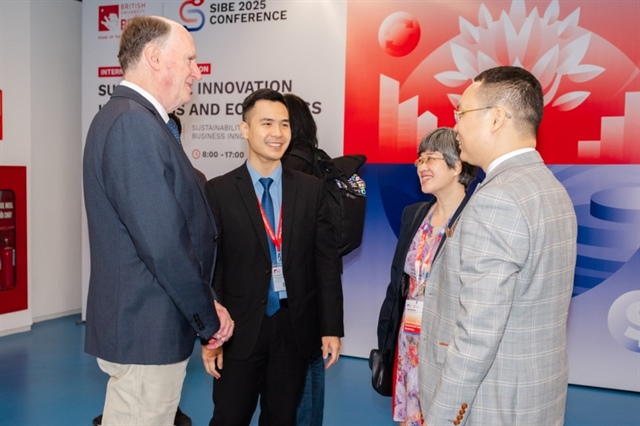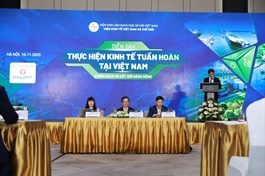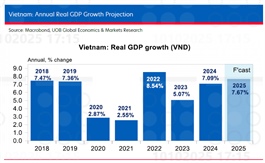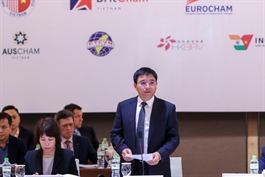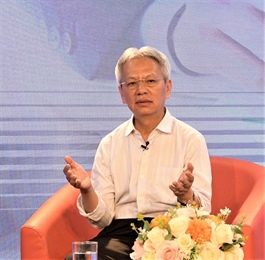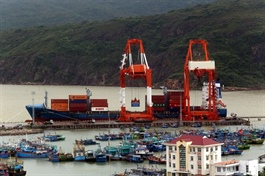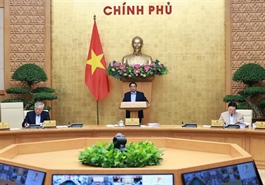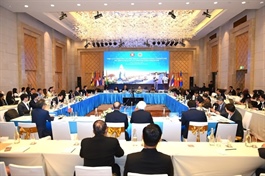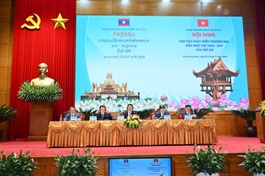Vietnam charts green growth path at SIBE 2025
Vietnam charts green growth path at SIBE 2025
Vietnam is stepping up as a green growth leader, with scholars, policymakers, and business leaders gathering to chart innovation-driven paths for sustainable development.

Mark Wheaton, BUV’s director of Higher Education |
As globalisation and climate change reshape the world, Vietnam is asserting itself as a proactive player in the green transition. At the Sustainable Innovation in Business and Economics (SIBE) 2025 International Conference on November 6 at British University Vietnam (BUV) in Ecopark, Hung Yen, nearly 130 scholars, policymakers, and business leaders from six countries convened, both in person and online, to explore innovation-driven strategies for sustainable, inclusive, and environmentally conscious growth.
“In just the blink of an eye, the need for innovation and a sustainable future has become more urgent than ever,” said Mark Wheaton, BUV’s director of Higher Education.
Wheaton expressed hope that SIBE would grow into an annual platform connecting global expertise and shaping practical solutions for the challenges of a changing economy.
Among the most notable presentations, Prof. Magiswary from Taylor’s University in Malaysia highlighted the role of AI as a catalyst for green growth. "By optimising processes, reducing waste, and expanding access to technology, AI, demonstrates that innovation is not just a growth driver but also an ethical responsibility to future generations," she argued.
Echoing that message, John Daly from Swiss Education Group added, "Innovation is a matter of survival for the hospitality industry – adapt, innovate or be left behind. Vietnam can become a regional innovation hub if it manages to combine technology, creativity, and human experience to redefine service value and elevate its national brand."
In finance, researchers Paul Amerigo Jr. II Belviz Pajo and Henry De Vera Castro examined how recent US tariff policies are reshaping trade and investment across ASEAN. Meanwhile, other Vietnamese scholars found that economic shocks from the US have increased volatility in Bitcoin and digital assets – showing how fintech is directly responding to global volatility.
From a business perspective, Nguyen Huu Hieu, CEO of FiinGroup, analysed Vietnam’s green bond transactions and noted that while demand for environmental, social, and governance (ESG) data and evaluation tools is growing rapidly, the market still lacks transparency. "Building a standardised ESG framework, he argued, will be crucial to attracting sustainable capital and reinforcing investor confidence," he said.
Together, these insights underline a broader truth: Vietnam must continue to strengthen its institutions, data systems, and fintech to adapt and lead in the region’s journey towards sustainable growth.
|
Another topic that sparked strong debate was 'greenwashing' – when companies claim to be 'green' but fail to deliver in practice. Experts warned that such practices risk eroding consumer trust, particularly among Gen Z, a generation that values authenticity and social responsibility.
Researchers identified four strategies companies often used to project a 'green' image: symbolic disclosure, perception management, greenwashing, and inconsistent ESG reporting. They highlighted stronger accountability and greater transparency in sustainability communication.
From the consumer side, it has been found that Gen Z cosmetics consumers respond most positively to campaigns that reflect Vietnamese identity rather than imitating Western formats, valuing sincerity and emotional authenticity.
In sustainable fashion, social media trends showed that while 72 per cent of Gen Z respondents recognised the importance of sustainability, only 41 per cent made purchases – citing price barriers and doubts over authenticity. The study concluded that micro-influencers and relatable, locally grounded storytelling are essential for encouraging responsible consumption.
Together, these findings underscore a clear message: sustainability cannot remain a slogan – it must be backed by tangible action and transparent practices.
The conference also highlighted how Vietnam is entering a decisive phase where technology, human capital, and national identity form the foundation of sustainable progress.
Urban human capital can serve as a catalyst for innovation, enabling small and medium-sized enterprises to raise productivity through local knowledge networks. Beyond it, when universities and students share common values and purpose, this connection can become a powerful driver of innovation and long-term engagement.
Collectively, these perspectives reveal that Vietnam is not merely catching up with global trends – it is shaping its own path, rooted in local action, human-centred investment, and a vision for a greener, more innovative, and truly sustainable economy.
- 19:36 10/11/2025


